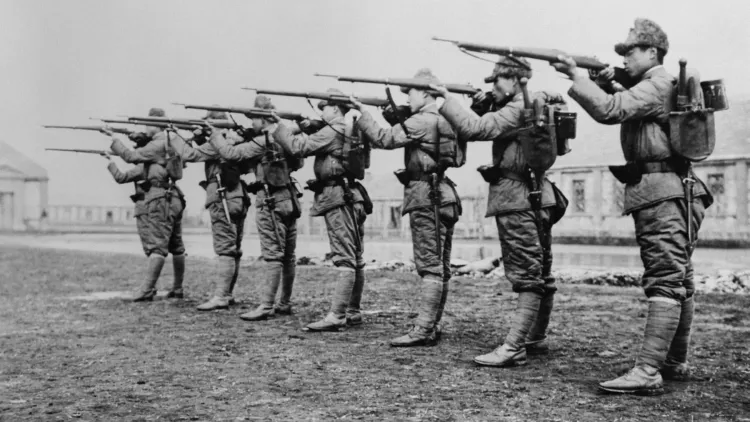Japan's involvement in Manchuria...!!!
The making of Manchuria is a narrative of geopolitical maneuvering, economic exploitation, and resistance. From the early days of the Qing Dynasty to the establishment of Manchukuo and its eventual liberation, the region has been a battleground for competing interests.

The history of Manchuria is intricate and multifaceted, encompassing various political, economic, and military developments over several decades.
Early History and Geopolitical Importance
Manchuria, located in Northeast China, has long been a region of strategic significance due to its abundant natural resources and geographical position. Historically, it was home to the Manchu people, who established the Qing Dynasty in China. The region's importance persisted into the modern era, drawing the interest of various powers.
Japanese Involvement and the South Manchuria Railway
Japan's involvement in Manchuria gained momentum following the Russo-Japanese War (1904-1905), resulting in Japan gaining control of the South Manchuria Railway. This railway became a pivotal asset for Japan, facilitating its economic and political influence in the region. The South Manchuria Railway Company played a critical role in Japan's gradual colonization of Manchuria.
The Mukden Incident and the Establishment of Manchukuo
A turning point in Japan's control over Manchuria occurred with the Mukden Incident in 1931. Japanese military forces orchestrated an explosion on the railway and blamed it on Chinese dissidents, using it as a pretext to occupy the region. By 1932, Japan had established the puppet state of Manchukuo, installing the last Qing emperor, Puyi, as its figurehead ruler.

Economic Exploitation and Infrastructure Development
Under Japanese rule, Manchuria underwent significant economic exploitation and infrastructure development. Japan invested heavily in the region's industrialization, constructing factories, railways, and other infrastructure projects aimed at extracting resources and integrating Manchuria into Japan's empire.
Resistance and International Reactions
The creation of Manchukuo met resistance from the local population and condemnation from the international community. China, led by the Nationalist government, continued to resist Japanese occupation, resulting in ongoing conflict in the region. The League of Nations condemned Japan's actions, but little was done to enforce sanctions or restore Chinese sovereignty.
World War II and the End of Japanese Rule
Japanese control over Manchuria persisted until the end of World War II. In 1945, Soviet forces invaded Manchuria, leading to the collapse of Japanese rule and the restoration of Chinese control over the region. The aftermath of the war saw Manchuria become a focal point of the Chinese Civil War, with both the Nationalists and Communists vying for control.
Legacy and Modern Implications
The legacy of Japanese rule in Manchuria has had enduring implications for the region and its people. The period of Japanese occupation left a lasting mark on Manchuria's economic and social landscape, influencing its development in the post-war era. The history of Manchuria serves as a reminder of the complex interplay of imperialism, resistance, and international politics in shaping the modern world.
The making of Manchuria is a narrative of geopolitical maneuvering, economic exploitation, and resistance. From the early days of the Qing Dynasty to the establishment of Manchukuo and its eventual liberation, the region has been a battleground for competing interests. Understanding this history is crucial for comprehending the broader context of East Asian relations and the impact of imperialism on the region.
What's Your Reaction?















